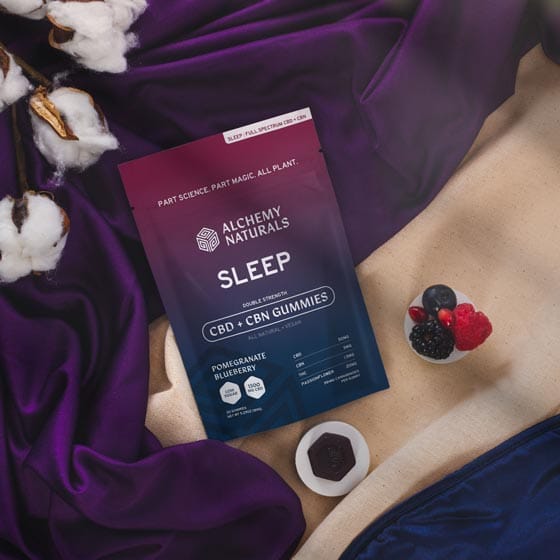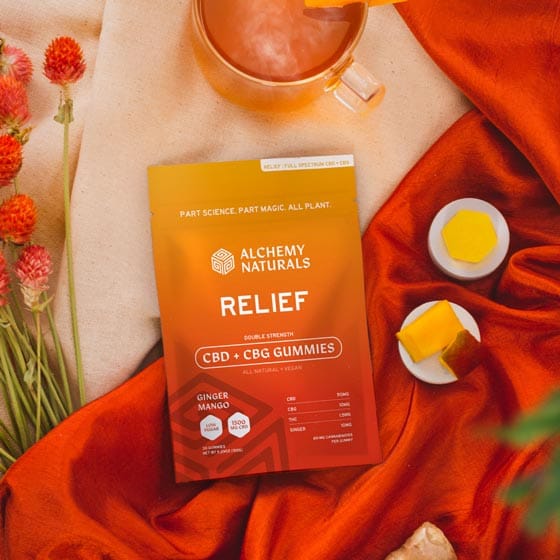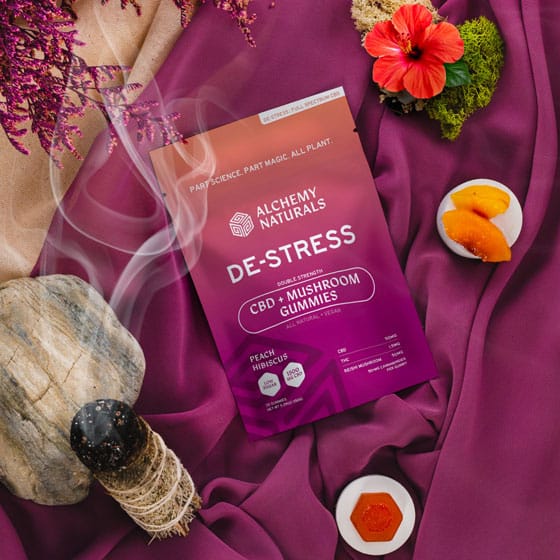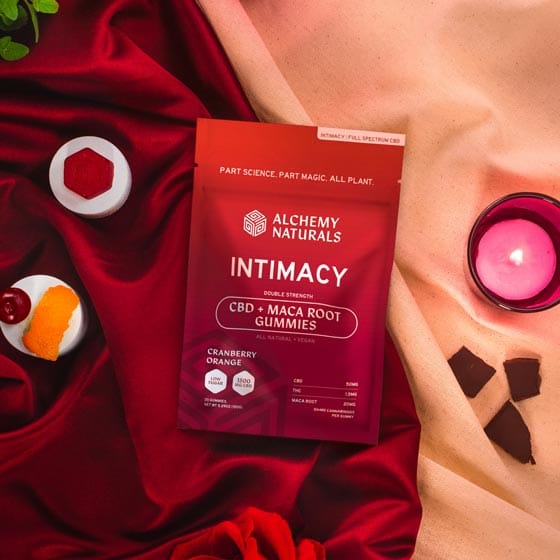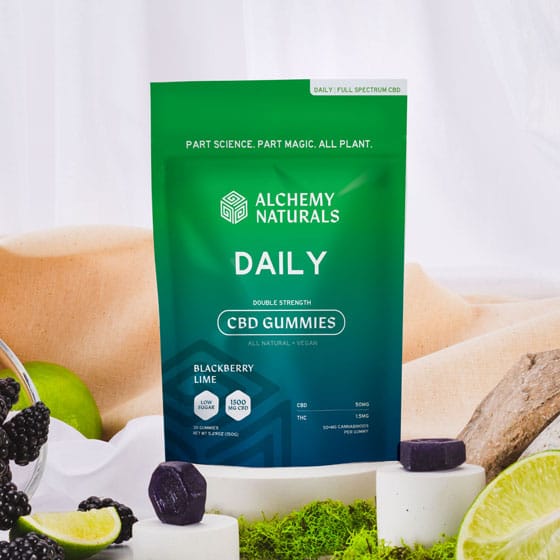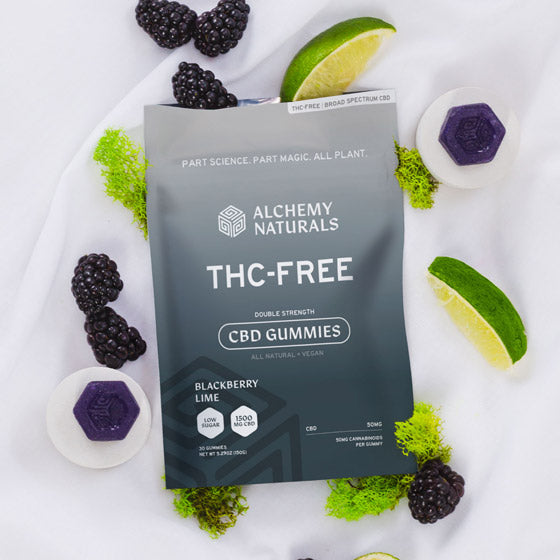CBD, or cannabidiol, has increasingly become a popular and trusted holistic solution for various health concerns. Derived from hemp, CBD is legal and available both online and in physical stores. But since it’s derived from the cannabis plant, many people are asking the question: Does CBD show up on drug tests? In this comprehensive article, we will discuss if it indeed shows up on drug tests.
Cannabidiol is a naturally occurring cannabinoid found in the cannabis plant. When shopping for CBD, for which Alchemy Naturals is a popular and trusted online store, you’ll come across full-spectrum, broad-spectrum, and isolate gummies.
- Isolates contain only CBD and no other cannabinoids.
- Broad-spectrum CBD products contain CBD and other cannabinoids, but has the THC (tetrahydrocannabinol) removed, the cannabinoid that gives the feeling of being ‘high’.
- Full-spectrum CBD products contain CBD, THC, and all the other naturally occurring cannabinoids. By law, the product must contain no more than 0.3% of THC.
Most drug tests look for THC, which indicates the use of marijuana in the product. Many cannabis users worry - Does CBD show up on drug tests in urine results? The question cannot be answered in a straight yes or no, it’s a bit more complicated.
On rare occasions, CBD can give a false positive for THC in a drug test. If you are worried about CBD impacting the drug test’s results, then we suggest that you request a drug test, if possible, that only looks for THC and CBD.
Will CBD Cause a Positive Drug Test?
CBD alone will not cause a positive drug test, it is looking for the THC compound when it comes to marijuana. So, if you are wondering if CBD shows up on a drug test's urine analysis, which is commonly used by employers, then the answer is no.
It is worth noting that many CBD products contain very small amounts of THC, but still a sensitive drug test can pick it up. If such a drug test detects THC, then it will give a positive result.
Understanding How a Drug Test Works
Drug tests are designed to detect THC and not CBD. A variety of drug tests are used to detect the presence of cannabis in the sample. The most common drug test is called immunoassays.
With the immunoassay, a small sample of urine or blood is analyzed to look for either the active metabolite or the breakdown of THC. The test doesn’t look for the actual presence of THC, but the chemical reaction caused by the breakdown of the cannabinoids in the body.
A drug test cannot tell if someone is impaired by THC because the THC in the person’s system could have been ingested days or weeks before the test, but the chemical reaction remains in the body.
It is common for a person to test positive for THC use even a month after using a high concentration level of marijuana. This is especially true if the person is overweight because the body’s fat cells store the THC reaction for a long period of time.
Immunoassay drug tests are easily accessible and inexpensive. They are favored because they provide fast results. Sometimes, of course, false positives or false negatives can happen. If someone tests positive, a confirmation drug test is then carried out to verify the initial result.
Confirmatory testing relies on the use of mass spectrometry, which is popular in forensics. This form of drug test is considered the gold standard due to its accuracy. It can decisively detect THC - or indicate the absence of it - in a person’s urine or blood.
With spectrometry, the test looks for chemical structures to confirm the presence of THC. This type of test is very time-consuming and expensive, also requiring highly trained experts. Results take days, even weeks, to arrive.
Whether you take an immunoassay test or a confirmatory one, THC is detectable for three days to 30 days after consumption, depending on the extent of use. As discussed, THC is a fat-soluble chemical, so the body’s fat stores the cannabinoid. The THC is very slowly released by the fat cells into the bloodstream, which causes positive results in drug tests days or weeks after use.
So, Does CBD Show Up on Drug Tests?
Remember that tests look for THC and not CBD. In fact, drug tests for THC do not have a standard level of THC as the cut-off mark. Various laboratories and manufacturers have various cut-off levels for a positive test. Typically, with most immunoassay tests, 50 nanograms per milliliters of urine will give a positive test result.
Can CBD Turn into THC?

In your bid to seek an answer to the question - Does CBD show up on drug tests? - you would also be curious if CBD can turn into THC.
If you have used a CBD product that contains a small amount of THC, then you could test positive for drug use. CBD use could easily lead to a positive drug test if you frequently use full-spectrum CBD products that contain a certain level of THC.
CBD, after all, comes from the cannabis plant. All cannabis plants contain some degree of THC, other cannabinoids, terpenes, and flavonoids. The chemical composition varies greatly between plants, strains, and varieties.
Hemp, which is typically used for CBD products, contains very little THC, but marijuana is usually much higher in THC.
So, does CBD show up on drug tests? Well, you have to remember that you will probably test positive if you are using marijuana-based CBD, and you are unlikely to test positive if you are using hemp-based CBD.
Other things that can impact the test outcome include harvesting and refinement techniques. The refinement technique for full-spectrum CBD focuses on preserving the terpenes, cannabinoids, and flavonoids of the plant, so it is rich in THC as well.
You may test positive for THC if you extensively use full-spectrum CBD products because the THC builds up on your fat cells. So, you’ll need to understand that CBD does not show up in that case, but the THC from the full-spectrum product may show up.
Many manufacturers do not disclose where their CBD comes from, so it is possible for the product to contain a higher level of THC than 0.3%. But such cases are very rare.
How Much THC Should be Present to Register on a Drug Test?
Let's examine how much THC should be there to register on a drug test.
- Urine: Urine testing for THC is the most common form of drug test for employment and probation purposes. In urine, THC must be present at a concentration level of 50 nanograms per milliliter. Just an FYI: a nanogram is one-billionth of a gram.
- Blood: Blood tests for cannabis use are somewhat rare. THC is usually quickly eliminated from our bloodstream, so the window for testing is very small. Usually, THC Is detectable in your blood for only about five hours after use. However, some tests can pick up THC metabolites for up to seven days after consumption. Blood tests are often used by law enforcement when, for example, a motor vehicle accident occurs, in order to check for impairment for driving due to the influence of drugs. In states where cannabis is legal, the amount of THC concentration allowed in the blood ranges from 1-5 ng/mL, but some states have a zero-tolerance policy.
- Saliva: Saliva testing is extremely rare. There are no cut-off limits for THC in the saliva, but it is typically held at 4 ng/mL. THC Is detectable in saliva for only 72 hours, but if the users frequently use cannabis, then it might be detectable longer.
- Hair: Many people wonder - Does CBD show up on drug tests for hair? CBD does not show up in such tests, but THC does. As of now, there are no cut-off limits for THC in hair. However, it is typically accepted that the cut-off is 1 picogram per milligram (pg/mg). A picogram is one trillionth of a gram. THC is detectable in hair for up to 90 days.
Why Else Might CBD Use Result in a Positive Test Result for THC?
If you are still wondering - does CBD show up on drug tests? - remember that cross-contamination can sometimes occur. If you have two products, one that contains only CBD and one that contains elevated levels of THC, and if you keep them in the same container, then cross-contamination can take place.
Remember that second-hand exposure to marijuana smoke that contains prominent levels of THC can infiltrate your system and make you test positive. That apart, product mislabeling can also occur, such as accidentally placing a THC-rich product into a CBD-labeled container.
How Can You Confirm a CBD Product Doesn’t Contain THC?
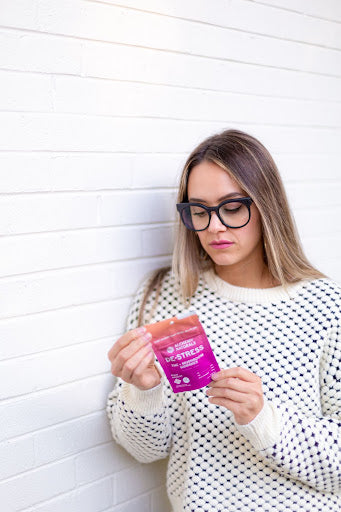
When using CBD, it is natural to worry about testing positive if your employer or probation officer regularly makes you undergo drug testing. However, the best way you can ensure you do not test positive for THC is to use only CBD pure products, such as a CBD isolate or a broad-spectrum CBD product that doesn’t contain THC.
If you are shopping for CBD gummies online, always check the label to ensure that it doesn’t contain THC. Also, check out third-party lab reports, which will reveal if any THC has been detected in the CBD product, and if so, how much it is.
Purchase CBD products only from a reputable store, to be on the safe side. Alchemy Naturals sells delicious CBD-infused gummies. When you visit the Alchemy Naturals website, you’ll find full-spectrum CBD gummies for sale. However, if you are still worried about a drug test and don’t want to take any chances, gor for Alchemy Naturals THC-Free gummies.
As long as you purchase THC-free CBD products from a reputable brand, and avoid any potential cross-contamination, you will avoid testing positive for THC with a drug test.
The Bottom Line
So, does CBD show up on drug tests? Well, now you know that CBD itself does not show up, but the presence of THC can result in a positive test. If you want to enjoy consuming CBD products while ensuring you’re on the safe side, it’s essential that you pick a respectable and trusted CBD brand such as Alchemy Naturals, which sells tried-and-tested THC-free CBD gummies.

